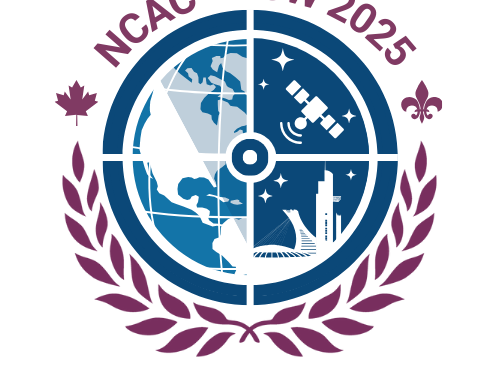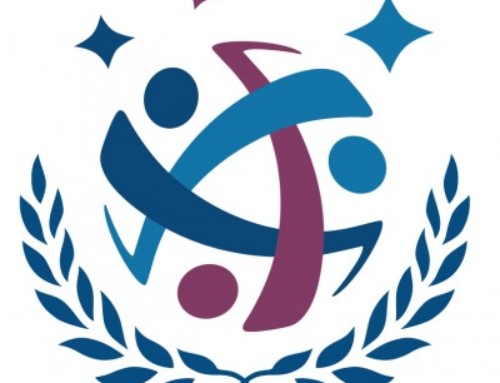SGAC announces the finalists of the LSA – SGAC NewSpace Europe 2021 – Pitch Competition
SGAC is proud to announce the 6 finalists of the LSA – SGAC NewSpace Europe 2021 – Pitch Competition, who will be sponsored to pitch their companies as part of the pitch competition at the NewSpace Europe 2021 conference in Luxembourg on the 24th of November 2021.
The winner of the Pitch Competition will be offered a 1-on-1 meeting with an experienced space investor for more detailed feedback on their pitch and business plan.
Meet our finalists:
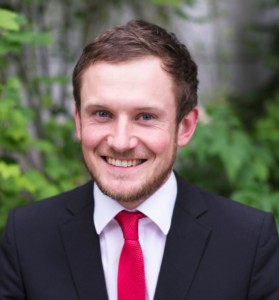
Markus Geiss – DcubeD
Markus Geiss is an explorer, engineer, entrepreneur and space advocate with over 10 years of international experience in the space sector ranging across academia, large system integrators and start-ups. Markus is the 4D Printing Lead and Business Development Manager at DcubeD and a systems engineer and project manager at OHB. In addition, he is co-founder of several ventures promoting awareness, outreach and excitement for space.
Markus holds a Master’s and PhD in Aerospace Engineering from the University of Colorado Boulder where he focused on design optimization and 4D printing. Before that, Markus attended the International Space University’s Space Studies Program in 2014 and the University of Applied Sciences in Munich for his Bachelor studies.
“ I am deeply honored to be one of the 2021 SGAC – LSA NewSpace Europe Pitch Competition Grant winners. This provides a unique opportunity for myself and DcubeD to interact with and learn from the global leaders in the NewSpace ecosystem.”
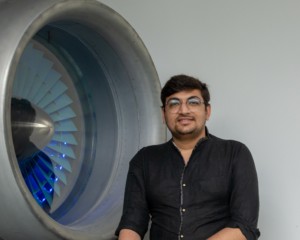
Smit Patel – MOONPORT
Smit Patel, born and brought up in Ahmedabad, India and currently pursuing his Master in Aerospace Engineering at Technical University Braunschweig in Germany. He is an International Space University alumnus and successfully completed SSP21. He completed his Bachelor in Mechanical Engineering at Indus University, Ahmedabad, India with the Student of the year award in his 3rd academic year. He is a member of the European Association of Aerospace Students EUROAVIA and president of local society in Braunschweig. Smit is polyglot, science communicator and a space influencer. Smit is striving to build a sustainable future beyond the Earth.
“ I am immensely grateful to be member of SGAC and thankful to the council for this generous scholarship to attend NewSpace Europe conference 2021 in Luxemburg and for the opportunity to participate in the Pitch competition to present the project MOONPORT!”
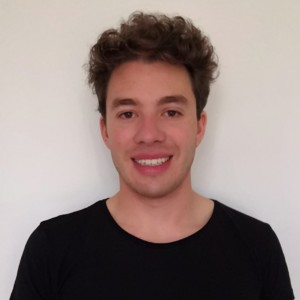
Filippo Oggionni – REVOLV
Filippo Oggionni was born and raised in Bergamo (Italy). After spending one year in the US for an academic exchange, he has earned his Bachelor’s Degree in Aerospace Engineering from Politecnico di Milano. He then moved to the Netherlands to continue his studies in Space Flight at Delft University of Technology, where he is currently writing his MSc thesis about the trajectory design of a space-based geoengineering mission. There, he is also working part-time to develop the TU Delft Astrodynamics Toolbox (Tudat).
Besides his studies, Filippo has gained experience in remote sensing and Earth Observation thanks to an internship at the Netherlands Institute for Space Research, where he worked on the monitoring of TROPOMI (Sentinel 5-P). In addition, he has conducted an internship at the Observatory of Paris about the analysis of solar events, where he focused on the relationship between solar geomagnetic activity and the thermospheric density in Low Earth Orbit.
Filippo is also co-founder of REVOLV, a project that aims to enable the next generation of nano- and micro-satellite commercial constellations.
“ Being able to share the vision we have at REVOLV with the participants of NewSpace Europe is a great opportunity and an honor. I would like to thank SGAC for the constant support they provide to students and young professionals.”
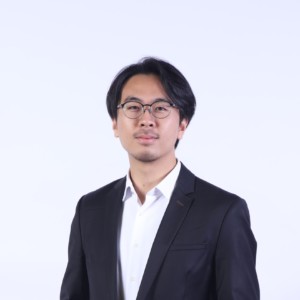
Thomas Yen – Tensor Tech
Back in 2016, Thomas started to research spherical motors with his partner Sam. The studied this topic in the Electrical Machine and Drive System Laboratory in the Department of Electrical Engineering, National Cheng-Kung University. It was here that an opportunity arose, since their lab was helping the National Space Organization (NSPO) in Taiwan to build single-axis reaction wheels.
By participating in that reaction wheel development work, Thomas and Sam found a pain point for commercial space players. Attitude Determination and Control System (ADCS) takes an unavoidable portion of the weight and volume from a satellite. However, the size of satellite buses has to be shrunk to reduce costs and extract more volume for payloads. Therefore, they targeted their spherical motor towards satellite applications and tried to resolve the obstacles for satellite minitiurisation.
After years of research, Thomas and Sam finally worked out a feasible solution. Their team then spun out from NCKU as a startup company- Tensor Tech in 2019. To accelerate the growth of our company, Thomas dropped out of the Department of Electrical Engineering, National Taiwan University, right after the beginning of his entrepreneurial life.
“Tensor Tech is a professional, service-oriented, and attitude-control-focused company. Our spherical motor solution can help satellite missions reduce costs and extract more returns by saving size, weight, and power consumption (SWaP). Moreover, we not only position ourselves as a component supplier but also a total solution deliverer. To contribute to the accessibility of commercial space, integrated ADCS and related services, including testings and free mission planning consulting for potential customers, are provided by Tensor Tech. Ultimately, we would like to facilitate the space industry’s growth by making more people profiting from it. Hoping our efforts can enable more exciting space-based applications to pop up in the future, that’s the dream and driving force for me and Tensor Tech to go forward.“
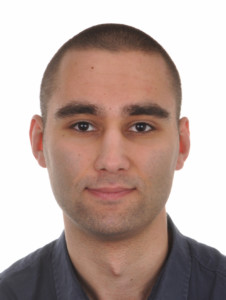
Johannes Schumacher – Celestial Space Technologies
Johannes is an enthusiastic technology evangelist. His educational background is in industrial engineering and management. He brings years of marketing, business strategy and product development experience in the B2B sector with him. He has worked for multiple innovative startups internationally which develop cutting-edge technology, including: In-Situ Resource Utilization (ISRU) for Lunar Missions, production engineering in electronics printing, business development for Industry 4.0 solutions such as predictive maintenance, DIY-Hacking in 3D Printing, research in Additive Manufacturing, and corporate innovation related to emerging technologies such as AR/VR. With his broad interdisciplinary knowledge in technology, business and entrepreneurship he is looking to make a big impact.
“Space exploration and AI (also in combination) will be the two biggest stories of the 21st century.”
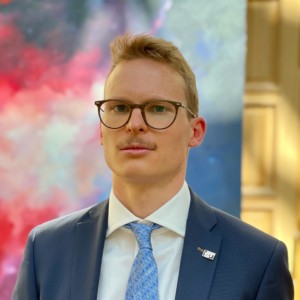
Jan Van Baelen – Lunar Grid
Jan Van Baelen is the founder & CEO of The Lunar Grid, a prospering startup developing lunar infrastructure to provide access to energy anywhere across the surface the moon. Before founding the startup, Jan worked at the European Space Operations Center in Darmstadt, Germany, as a YGT for Research, Technology and Innovation Management. He holds a M.Sc. in Aerospace Engineering from KU Leuven and completed the Interactive Space Program at the International Space University where he was coordinating one of the team projects investigating the use of space assets for the mitigation of the effects of pandemic. Besides, Jan also graduated the MBA Essentials course at the London School of Economics and pursued the Space Resources Professional Course organised by the Colorado School of Mines in cooperation with the Luxembourg Space Agency & ISU. Jan carries an holistic view on the space industry and has great fascination for all exciting developments in the New Space economy. With a particular interest for lunar exploration and the utilisation of space recourses, he is curious to see space technologies evolving as part of everyday life and vigorously excited to be involved in shaping the new era of space.
“The cislunar economy is rapidly solidifying. Disruptive approaches enable new business models and a breath of opportunities for young entrepreneurs. It is truly an exciting time to be working on the new era of space and to experience the reinvigoration of human space exploration.”

